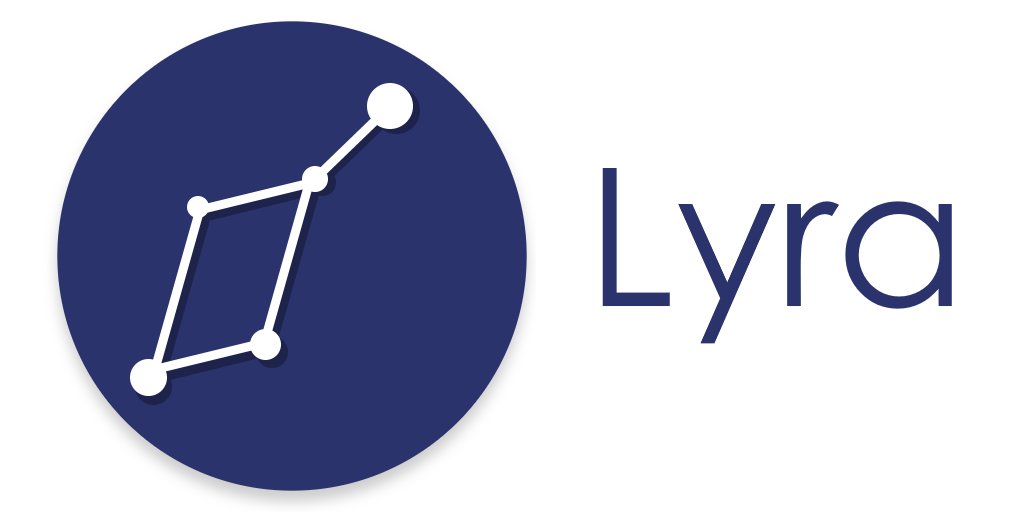Lyra is an open source library for Android that simplify the save and the restore of Android components' state. Lyra supports automatic save/restore, base coders to serialize/deserialize values in Bundle, caching and retrieval of fields. Lyra includes a flexible API that allows developers to customize any aforementioned behavior.
By default, Lyra uses an internal serializer/deserializer for fields, but also provides a utility library to add serialization/deserialization capabilities of Gson.
Integration
You can download a jar from GitHub's releases page or grab it from jcenter() or mavenCentral(). You can optionally use the dependency lyra-coder-gson if you want to include the Gson coder.
Gradle
dependencies {
compile 'com.github.fondesa:lyra:1.0.1'
// Use this dependency if you want to include the Gson coder.
compile 'com.github.fondesa:lyra-coder-gson:1.0.1'
}
Maven
<dependency>
<groupId>com.github.fondesa</groupId>
<artifactId>lyra</artifactId>
<version>1.0.1</version>
<type>pom</type> </dependency>ProGuard
If you are using ProGuard, you need to include the following lines to your proguard configuration file.
-keepclassmembers class * implements com.fondesa.lyra.coder.StateCoder {
<init>(...);
}
-keepclassmembers class ** {
@com.fondesa.lyra.annotation.SaveState <fields>;
}
Usage
You have to initialize the Lyra instance in your Application. You can use the short version with only required options:
@Override public void onCreate() {
super.onCreate();
// Pass the Application's Context to the instance.
Lyra.with(this).build();
}
Or the full version to customize each component:
@Override public void onCreate() {
super.onCreate();
// Create the builder and pass the Application's Context.
Lyra.Builder builder = Lyra.with(this)
// Optional, the default is: DefaultCoderRetriever.
.coderRetriever(new CustomCoderRetriver())
// Optional, the default is: DefaultFieldsRetriever.
.fieldsRetriever(new CustomFieldsRetriever());
// Automatic save state is available only above api 14.
if (Build.VERSION.SDK_INT >= Build.VERSION_CODES.ICE_CREAM_SANDWICH) {
// Optional, the default will not save the state of the Activities automatically.
builder.autoSaveActivities();
}
// Build the instance.
builder.build();
}
You have to annotate the fields that you want to save with the annotation @SaveState and, if needed, you have to call the methods saveState() and restoreState():
public class MainActivity extends Activity {
@SaveState
private int mCount;
@SaveState
ParcelableModel mModel;
// If you want to use a custom coder, you can specify the class.
@SaveState(CustomStringCoder.class)
private String mText;
@Override
protected void onCreate(Bundle savedInstanceState) {
super.onCreate(savedInstanceState);
/* Necessary only if you aren't in an Activity or you
haven't specified to auto save Activities in the Lyra instance. */
Lyra.instance().restoreState(this, savedInstanceState);
}
@Override
protected void onSaveInstanceState(Bundle outState) {
super.onSaveInstanceState(outState);
/* Necessary only if you aren't in an Activity or you
haven't specified to auto save Activities in the Lyra instance. */
Lyra.instance().saveState(this, outState);
}
}
The save/restore of the state is supported also in a custom View. For example:
public class AutoSaveEditText extends AppCompatEditText {
@SaveState
CharSequence mText;
@Override
public Parcelable onSaveInstanceState() {
return Lyra.instance().saveState(this, super.onSaveInstanceState());
}
@Override
public void onRestoreInstanceState(Parcelable state) {
super.onRestoreInstanceState(Lyra.instance().restoreState(this, state));
}
}
As shown above, you can create your own custom StateCoder. For example, this coder will save/restore a String in Base64:
public class CustomStringCoder implements StateCoder<String> {
@Override
public void serialize(@NonNull Bundle state, @NonNull String key, @NonNull String fieldValue) {
try {
byte[] data = fieldValue.getBytes("UTF-8");
String base64 = Base64.encodeToString(data, Base64.DEFAULT);
state.putString(key, base64);
}
catch (UnsupportedEncodingException ignored) {
}
}
@Override
public String deserialize(@NonNull Bundle state, @NonNull String key) {
String base64 = state.getString(key);
if (base64 == null)
return null;
byte[] data = Base64.decode(base64, Base64.DEFAULT);
try {
return new String(data, "UTF-8");
}
catch (UnsupportedEncodingException ignored) {
return null;
}
}
}
Compatibility
Android SDK: Lyra requires a minimum API level of 9.
